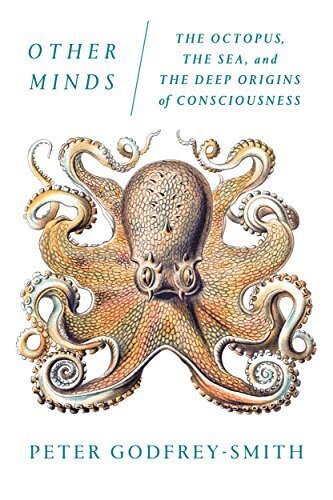
Fascinating read that is ostensibly about cephalopods (octopuses, cuttlefish), but in reality, is largely focused on consciousness, intelligence, and evolution.
Cephalopods are an island of mental complexity in the sea of invertebrate animals. Because our most recent common ancestor was so simple and lies so far back, cephalopods are an independent experiment in the evolution of large brains and complex behavior. If we can make contact with cephalopods as sentient beings, it is not because of a shared history, not because of kinship, but because evolution built minds twice over. This is probably the closest we will come to meeting an intelligent alien.
A few of my favorite takeaways from the book:
-
I love the idea of thinking of cephalopods as essentially aliens. An octopus has three hearts, blue-green blood, and a distributed nervous system, with twice as many neurons in their arms as in their brains (they seem to coordinate overall behavior in the brain, but the limbs can also go off and do their own thing).
-
Despite how alien they seem, the book emphasizes the point that all life on earth is part of one giant family tree. We have common ancestors with primates, dogs, cats, and if you go back far enough, even cephalopods. It’s not exactly a new insight, but I found the book did a lovely job of getting you to picture this massive tree of life, and realize how connected we all are.
-
There’s an interesting discussion of how consciousness forms. One of the key ingredients, the book argues, is that when a creature develops senses, they also have to develop the ability to differentiate between “I’m sensing something because something in the outside world changed” versus “I’m sensing something because I changed”: e.g., the difference between detecting movement in your eye because a fish is moving versus because you, yourself are moving. This need to distinguish between the self and the outside world, which is often done by sending a “copy” (known as an efference copy) of the various “commands” you send to your muscles (e.g., turn the head) to the senses, may be the starting point of self awareness. The same sort of efference copy may happen when an animal makes noises: you send a “command” to the throat to make the noise, but you also send a copy of that “command” to the part of that brain that deals with hearing, so it knows you are the one making the noise. The brain then starts expecting to hear certain sounds. Perhaps, over time, it develops the ability to “hear” those sounds internally, without actually having to make those sounds out loud?
-
I had a few good laughs at the stories of how playful and mischievous cephalopods in captivity can be (e.g., the ones who would squirt any new visitor to the lab), how they seem to be aware that they are in captivity, and how this affects the ability to do experiments that involve them.
